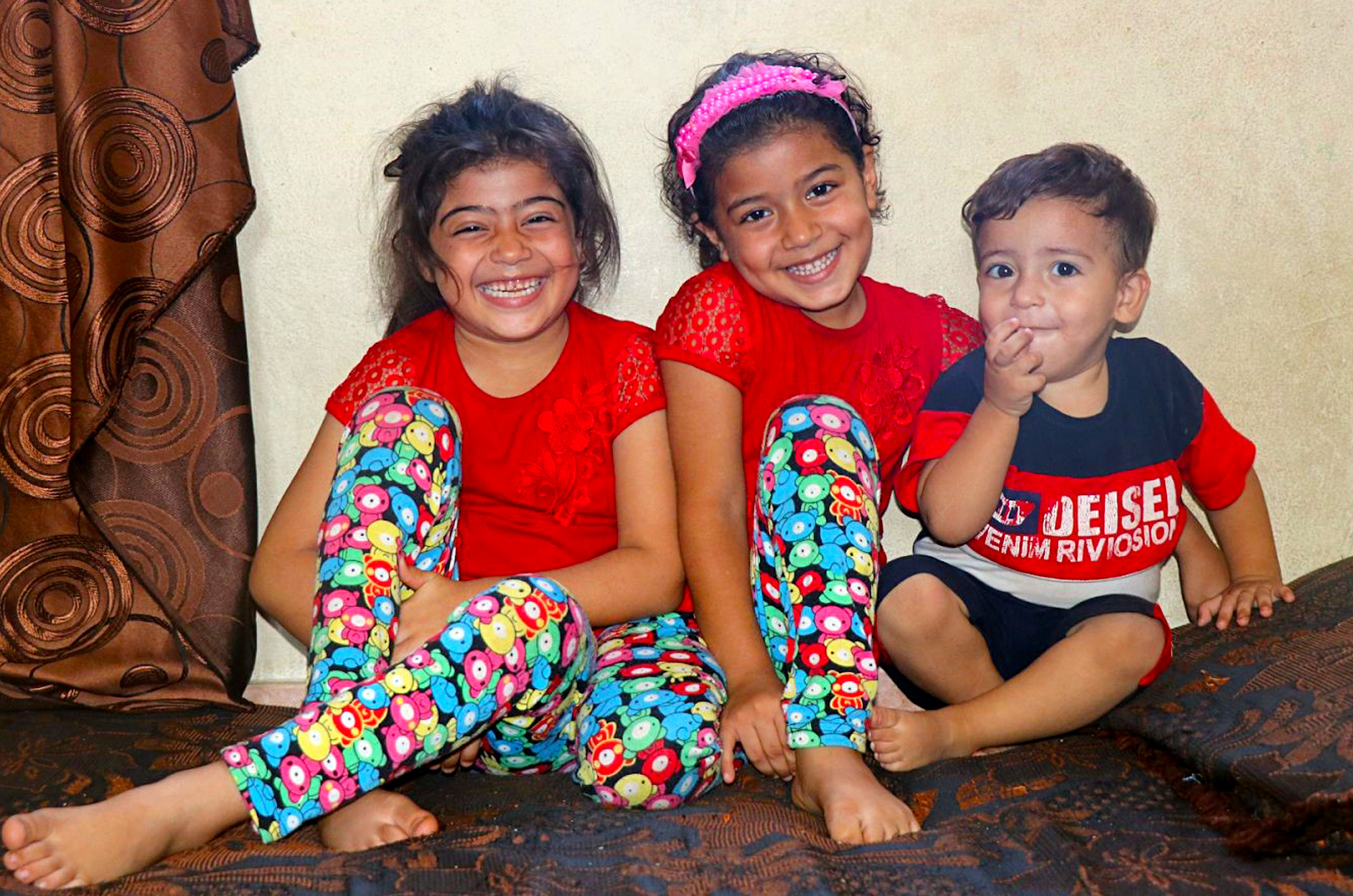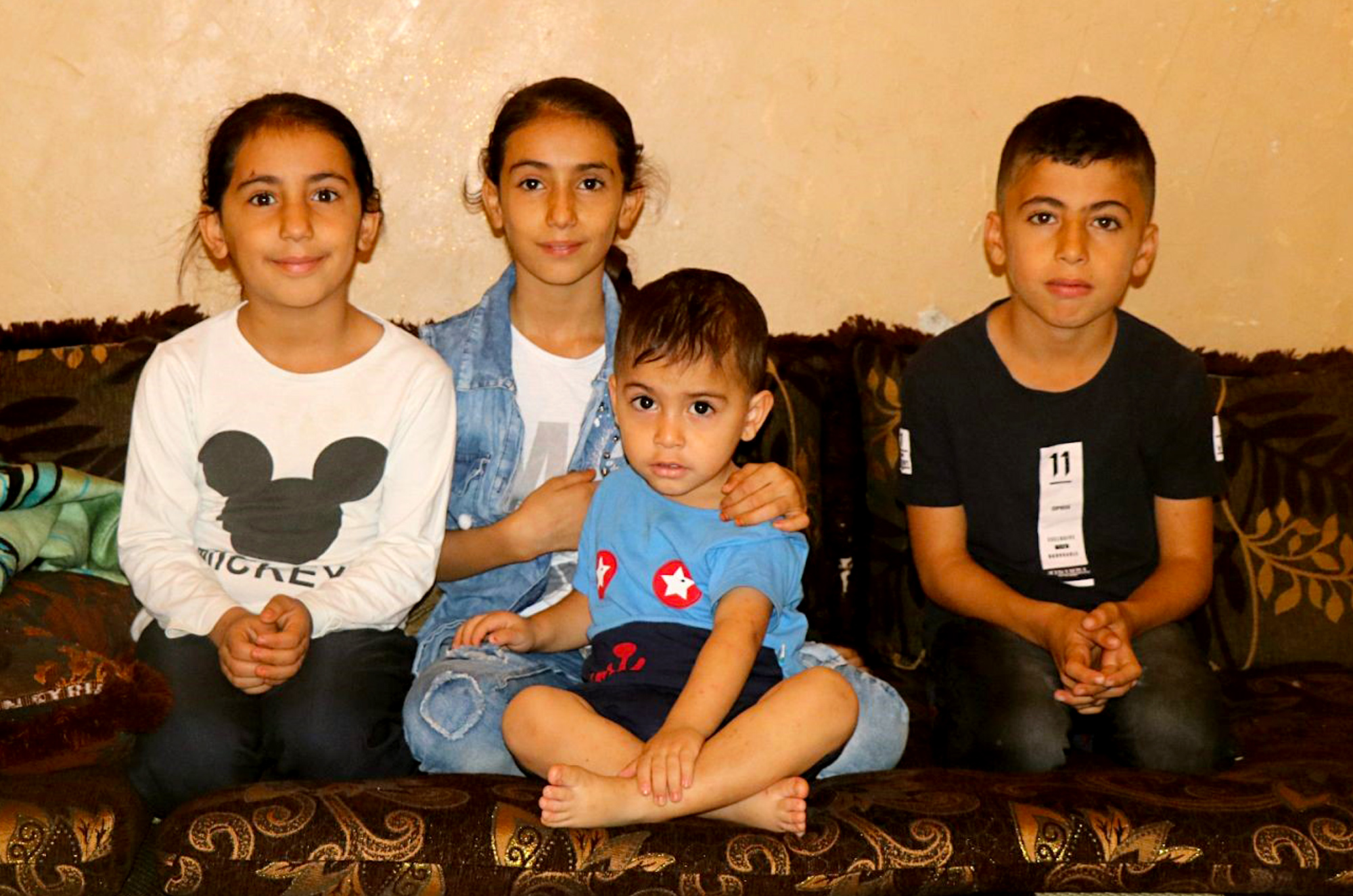COMMUNITY
A Little Cash Goes A Long Way For These Syrian Refugees in Lebanon
Nov, 2019
Cash assistance has helped two families provide education, shelter and health care for their children
Syrian refugees in Lebanon live in a perpetual state of emergency. Forced displacement has put their lives in limbo. They lack the security and stability to fully settle and rebuild their lives. They have nowhere to go. Their host country, Lebanon, was already burdened with economic and sectarian tensions.
We cannot end the refugee crisis, but we can extend a helping hand to those in need. Anera’s cash assistance project funded by UMCOR does just that, resulting in tangible improvements in people’s lives.
Awad is a 36-year-old Syrian refugee and father of four. He and his wife, Thouraya, live in the Al Chouf area of Tripoli, where there are few public services available to them.
Back in Syria, Awad and his partner ran a plastering and painting business. When they were forced to abandon their homes and escape to Lebanon in 2013, Awad could only find occasional work. These days, he usually joins the clusters of Syrian construction workers who gather under bridges, waiting for construction managers to recruit them for day labor. More often than not, the pay is below the Lebanese minimum wage of about $20 per day.
Awad was very worried about keeping a roof over their heads. The rent was nearly three months past due and the landlord warned him that they would soon be evicted. Like most Syrians, Awad and his family rent their home informally and therefore are not covered by legal protections for tenants.
Through the cash transfer program, Awad was able to pay his back rent and even paid the next month in advance.
Ensuring that his children resumed their studies was an even bigger concern for Awad than the rent. Although public schools are free, Awad could not afford the bus fare or even the school stationary his children needed. Now he can, and Awad’s four children are enrolled in school.
Unlike more traditional forms of aid, cash assistance offers families the flexibility to prioritize how to meet their own needs. Awad’s wife Thouraya had for years wanted to buy new clothes for the children. With a small portion of the first cash payment, she was finally able to take the kids shopping at the local thrift store. Awad was even able to repay their debt at the produce market next door.
These transactions may be commonplace for many people, but to Awad and his family they are an accomplishment and provide an enormous sense of relief. Awad says,
“One day, I hope to lead a life where I no longer need cash assistance. But one hand cannot clap on its own. And one broken human cannot always pull his own weight and support his family on his own.
This money is a motivation. It gives us a break from the anxiety and fear. Thank you for trusting us with these donations. Thank you for supporting your fellow brothers in humanity.”
***
Rahim, another participant in the cash transfer program, is a 40-year-old Syrian refugee and a father of six. Until recently, he and his wife and children shared a three-bedroom apartment with his parents and his brother. The lack of privacy was affecting his marriage and his children’s comfort.
As soon as they received the first cash transfer, Rahim and his family were able to move to a separate apartment.
Like Awad and Thouraya, it had been several years since Rahim had been able to buy new clothes for his kids. Rahim says,
“Many holidays passed [times when children are traditionally given new clothes]...
We managed to keep them warm thanks to the donations of some well-off Syrian families. But it’s not the same as getting them new clothes that they want to wear.”
Rahim’s son has been suffering from several health problems. Rahim took him to several charity health clinics but none had the capacity to diagnose him. After the cash transfers began, Rahim was finally able to take his son to a private hospital with the necessary equipment to give him a full examination and conduct blood tests. They are awaiting the results now.
Rahim says, “After getting the financial assistance, my relationship with my wife and family has gotten better."
“I feel more empowered. I don’t want to keep receiving cash assistance for long. There are many more families in need of the support which I received. But this has definitely been the help I needed to move forward, to stay hopeful.”
These families are two of the 250 Syrian and Lebanese households in vulnerable conditions, living below the poverty line and in extremely difficult circumstances. Cash assistance offers these families some financial stability to permit them to plan for the future.




